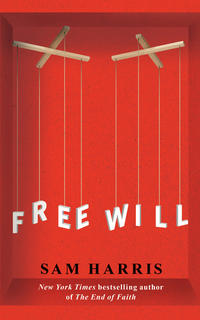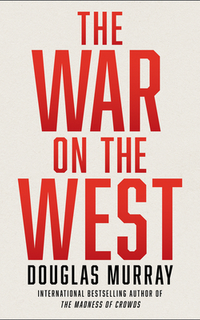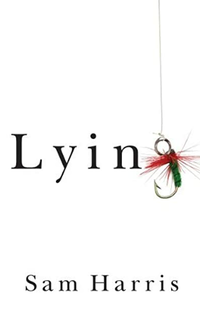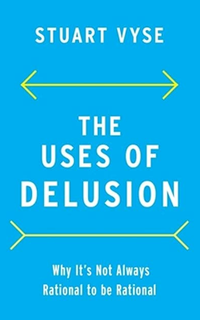Collection
Weekly Reading List 5.23.22
The new weekly reading list is up. This week I finished 6 books by some amazing authors!
- Curated in Weekly Reading List 5.23.22
This was the first book I read about free will, and it’s been years, so I wanted to read again. I spent the first 30ish years of my life not questioning free will at all, and when I read this book, it changed my perspective so much. By no means is this the best or most extensive book on free will, but it’s the perfect introduction to the topic. The book is extremely short, and Sam Harris presents thought experiments along with some philosophy to have you question whether we’re actually in control or not.

- Curated in Weekly Reading List 5.23.22
I read this book last year, and I wanted to revisit it. Upon reading it again, I realized that although I’ve read dozens of personal finance books, this one had the biggest impact on me. I got sober in 2012, and my life has was a financial mess before, during, and after my addiction. Today, I’m killing it. My credit score is over 100 points higher, I have a 401k, investment accounts, savings, and more, and so much is thanks to this book. When reflecting, I realized that 99% of what I’ve done to improve my financial life is thanks to this book.
What’s crazy is that I was so skeptical of this book. When you read the title, you think it’s going to be filled with nonsense like so many other terrible books about becoming rich. But Ramit Sethi provides so much practical advice, and I’m super receptive to his tough-love approach. The book starts by having you take personal responsibility for your finances, and then he also talks a bunch of crap about messed up institutions like banks. He’s very conversational, and the whole book is just like a brutally honest friend giving you advice.
If I could only recommend one personal finance book, it’d be this one. Ramit covers everything you need to know. He discusses credit, debt, saving, investing, how much to save from your paychecks, how to spend on stuff you like without making awful decisions, and more. He also teaches you so many tricks about settling debts and getting better interest rates that I’ve used so many times, and they actually work. This book is so good, and I learned even more my second time around now that I have a solid foundation. I honestly don’t know if any other book has helped me as much as this one has.
- Curated in Weekly Reading List 5.23.22
I decided to give Douglas Murray another chance because I stopped reading his last book after a few chapters because it didn’t offer anything new. While I did finish this book, it definitely has similar issues, but I’ll start out with the good aspects of this book. Overall, as the title suggests, Murray focuses on how the West is often demonized for its past and many great achievements are overlooked or minimized because of some ancient transgression from a historical figure. That’s definitely a conversation that needs to be had, and I think Murray makes extremely strong arguments throughout the book that I hope opens some peoples’ eyes to some troubling things going on.
I did learn a bit more history about different figures in the West, and as an American, it was interesting learning about some other historical figures from the UK and other parts of the world. Murray also points out different hypocrisies from certain antiracist crowds, like letting racism of Karl Marx slide while attacking people like Benjamin Franklin and many others. There’s a definite problem with trying to erase history or not highlight various achievements due to the character of a person (especially when they lived in a much different time), and I think Murray defends this idea pretty well.
Now, where it lacks is the fact that so much of the book has already been said. Whenever I read a book, I always ask, “Who is this book for?”. Is it for a general audience? Or is it for people to soothe their confirmation bias? Is it going to tell us something new or repeat the same topics and stories we’ve heard about for the last six or seven years about how wokeness is bad? I imagine that this book is for the confirmation bias folk. I may be wrong, but if I am, I don’t think there’s any denying that this is exactly who is going to buy and read this book along with a small minority who hate read Murray.
Robin DiAngelo, Ibram X Kendi, and Nicole Hannah Jones…we get it. These names are repeated from the start to finish of this book, and I severely doubt many people who read this book aren’t familiar with these people or the stories associated with them. Then, you get the same stories about George Floyd, Black Lives Matter, and more random anecdotes we’ve all heard before. I get that there’s money to be made by pandering to a very specific audience, but for me, these books are such a massive waste of time. When I pick up non-fiction, I want to learn about new ideas, different perspectives, and learn something. In this book, it was extremely rare when I thought, “Interesting point that I haven’t heard before,” or “I was unaware of that story.” You could honestly just listen to Murray on any long-form podcast and gain just as much while saving hours of time.
I’m sure many people will think I just disagree with him, and that’s definitely not the case. I agree with most of what he says, and I think his arguments are stronger than most. There’s also plenty that I disagree with in this book as well. For every strong argument, there are probably more weak arguments due to the fact that it uses cherry-picked stories. And don’t get me wrong, the “woke” do this just as often, and I criticize their books just the same. I just don’t know how many more woke or anti-woke books we need that the same people keep writing and the same people keep reading. It doesn’t seem like it’s making this world any better of a place to live in.

- Curated in Weekly Reading List 5.23.22
Paul Bloom is one of my favorite authors, and this is one of the first books that I read by him, so I wanted to give it another read. This book is phenomenal and as usual, it blends philosophy, science, and psychology to make the reader think and question what we think we know about human nature. What I really love about this book is that Bloom picks different things that give us pleasure, presents theories from various people or conventional wisdom, and then he asks questions and points out how these theories don’t explain different aspects of pleasure. Bloom was the first one to introduce me to essentialism and so much more with this book. This book is more than worth the read, and I’ll most likely read it again in the coming years.
- Curated in Weekly Reading List 5.23.22
I read this book when I was about three years sober, and I still had a lot of work to do. This short book without a doubt helped me become a better person and adjust my thinking around lying. It’s been about seven years, and I decided to give it another read, and it’s still a fantastic book that I recommend everyone read.
My one critique of this book now that I’m reading it again is that this book is too short to do the topic justice. I now have a lot more knowledge about morality, lying, psychology, and other topics, and there’s a lot that this book doesn’t cover. Most importantly, it doesn’t cover self-deception and how we lie to ourselves. There are more and more books coming out about “useful delusions” and a variety of great arguments about how they help us cope with life or give ourselves courage and more. This book covers a vary narrow scope of the topic, and I really wish Sam would write a new, longer book. He covers some of these topics on his podcast, but with his views on the topic, he would definitely have enough material to write a book on the topic.

- Curated in Weekly Reading List 5.23.22
I love books about self-deception and irrationality, so when I heard about this book, I had to read it. I was personally unfamiliar with Stuart Vyse’s work, but I’m officially a fan. Although he’s a psychologist who writes about skepticism and people who believe weird things, it’s great to see someone like this write a book about the uses of delusions. It’s easy to see people who have delusional thinking as unintelligent or irrational, but that’s not always the case. We obviously evolved this way for a reason, so Stuart breaks down why some delusions might be useful.
This book covers so many great topics, and that’s why I enjoyed it more than some other books on the same topic. Vyse covers relationships, dealing with grief, self-confidence, brainwashing, and so many more interesting subjects in this book. He turns to the research and and gives an honest take on whether or not certain types of delusions are harming or helping us. I can’t recommend this book enough, and I will most likely be reading it again.


